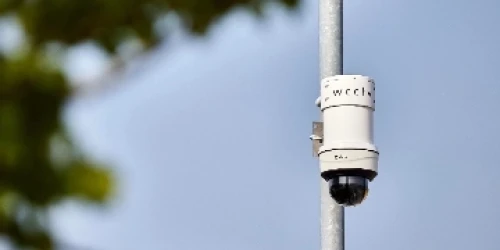

View navigation
Contents
[show]Fly-Tipping is an increasingly serious problem that blights communities and has lasting effects on our environment. WCCTV investigates these impacts and the best ways to prevent fly-tipping.
Fly-tipping is an increasingly widespread problem across the UK, affecting urban and rural locations. Cases have increased exponentially during the pandemic but were already growing steadily due to the sheer volume of waste we produce as a society.
In 2020/2021, the most recently available data, Defra reported that local authorities dealt with just under 1.13 million fly-tipping incidents in 12 months, an increase of 16% from the 980,000 reported in 2019/20.
Local authorities have a mandatory responsibility of cleanup operations following a fly-tip due to the health risk and environmental dangers they pose, not to mention the unsightly blight they create within communities.
WCCTV has worked with local authorities seeking to combat fly-tipping for over 20 years, and below, we use our unrivalled knowledge to explore the impact of this crime and ways it can be reduced.
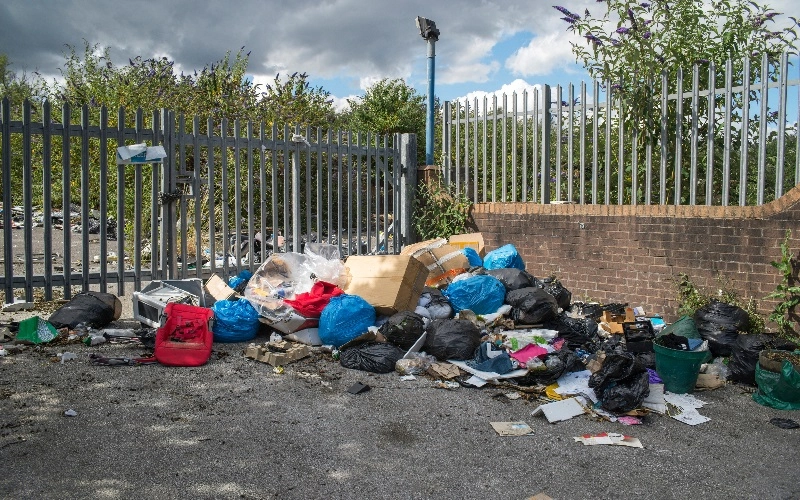
Fly-tipping is the illegal disposal or dumping of liquid or solid waste onto land or water that is not permitted to receive it. The waste is usually dumped to avoid the costs associated with legal disposal.
Fly-tipped waste can be found anywhere, on roadsides, in lay-bys or on private land.
This illegal dumping can be perpetrated by individuals or by organised gangs. Individuals tend to illegally dispose of household waste items such as electrical items, furniture or bin bags full of rubbish in the street.
Larger scale fly-tipping can involve several truckloads of construction and demolition waste being illegally disposed of.
Even registered waste disposal firms employed to carry out legal and responsible waste management have been caught fly-tipping as a means of cost-cutting.
Households are producing ever more waste, and statistics indicate that two-thirds of all fly-tipping incidents involve household items rather than commercial waste - source.
Across the UK, the most frequently illegally discarded items are:
Vehicle components: parts, tyres, oil
Construction materials: timber, asbestos, rubble
Hazardous materials: syringes, used nappies, animal waste
White goods: fridges, freezers, dishwashers, washing machines
Furniture: mattresses, sofas, tables, beds
Garden waste: grass, shrubs, rubble, bricks, fence panels
Household waste: children's toys, wood, prams, black bags of rubbish, packaging materials
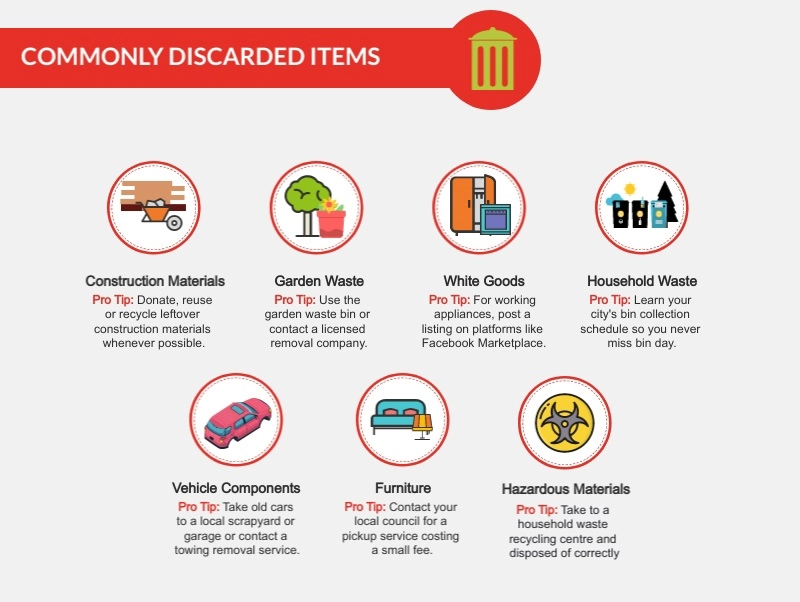
We opened this article with perhaps the two most significant contributors to the rise in fly-tipping, the sheer volume of waste we produce daily, and the amplification of waste disposal issues caused by the global pandemic.
But fly-tipping was on the rise way before Covid-19, and there are some key reasons why people engage in this illegal activity.
Legally disposing of business and commercial waste involves costs.
As a rough estimate, if a company charges by truckload, costs are between £110 and £290.
If pricing is by cubic yards, a more typical range is from £70 (for one cubic yard) to £210 (for nine cubic yards).
For builder's waste, typical costs are between £70 (for 150kg) and £270 (for 1,000kg) - source.
Offenders in this category have little regard for the impact of their actions; they are simply trying to protect their own pockets.
During the pandemic, many recycling centres closed due to the national lockdown. This created issues for many councils, as instances of fly-tipping soared during this period.
Additionally, those without access to personal vehicles may not be able to transport household waste to local recycling centres and instead resort to dumping it on the street.
According to the Waste Resources Action Programme (WRAP), businesses produce a quarter of all of England's waste.
Professionals within these industries may not be aware of the regulations surrounding waste management and illegal discard of items.
There has been a rise in 'rouge' waste disposal firms who help either knowing or unwitting homeowners and businesses engage in illegal waste disposal.
Fly-tipping has far-reaching consequences for our communities, the environment, and the taxpayers burdened with the knock-on effect of the cost of expensive cleanup operations.
Some of the key facts around the impact of fly-tipping include:
A large proportion of fly-tipping occurs in remote locations where criminals believe there is less chance of getting caught. This means fields, rivers, lakes, and ditches bear the brunt of most fly-tipping - which in turn creates a toxified environment for wildlife and livestock - source
12m tonnes of plastic waste ends up in our oceans every year, severally affecting ocean life - source
The waste dumped by fly-tippers attracts flies and vermin, creating the potential for the spread of disease
The cost of clearance to local authorities in England in 2020/21 was £11.6 million - source
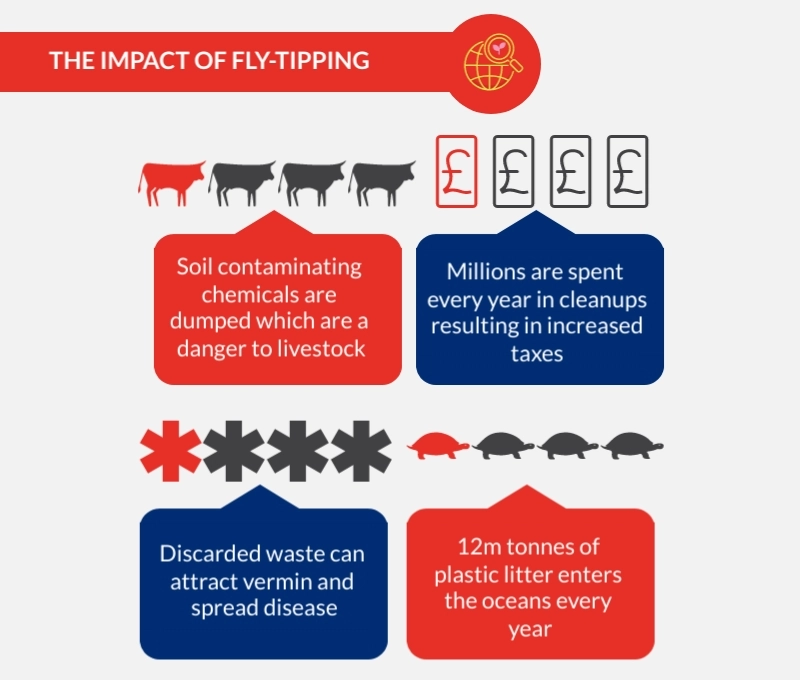
As the responsibility of clean up operations falls onto local authorities, fly-tipping prevention measures are typically council driven initiatives.
However, as we have outlined, fly-tipping can occur on private property and directly impact business and property owners.
WCCTV has supported local authorities across the UK with fly-tipping prevention for over 20 years, but the advice below can be applied to every area affected by fly-tipping.
Most fly-tipping occurs at night when those responsible believe there is less chance of being caught or identified. Increasing lighting in areas affected by fly-tipping is a simple and effective deterrent that will also aid in the identification of offenders.
If your borough is being affected by fly-tipping, consider investing in mobile security personnel to patrol the areas.
Redeployable CCTV Cameras are the ideal solution to deter and detect fly-tipping. Our mobile, wireless cameras can be quickly and easily deployed to fly-tipping hotspots and relocated once the issues are resolved. They feature sophisticated ANPR technology to aid in identifying offenders and secure prosecutions.
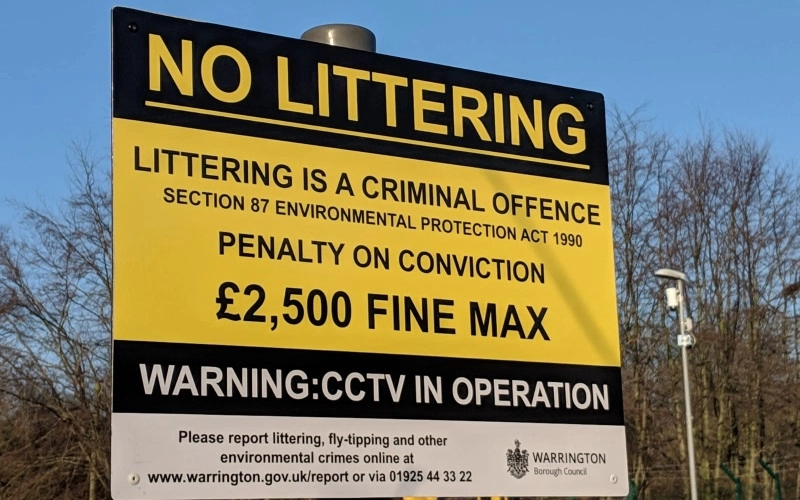
If you install CCTV, installing signage will help boost its effectiveness as a preventative deterrent. Potential fly-tipper will likely head the warnings that their actions are being monitored and recorded and look for other waste disposal methods.
One of the key motivating factors for those involved in fly-tipping is cost-cutting. If perpetrators are aware that you are actively monitoring fly-tipping hotspots and imposing fines with serious financial repercussions, it is likely to be a highly effective deterrent.
Redeployable CCTV cameras allow for the direct targeting of locations affected by fly-tipping.
They help police and local authorities gather evidence for prosecutions and act as a visual deterrent to potential offenders.
Once the issues in a specific area have been addressed, WCCTV's highly-portable cameras can be moved to other locations where monitoring is required.
To enhance their effectiveness at tackling fly-tipping, we can supply them with video analytics and ANPR cameras to capture clear images of licence plates.
The ANPR cameras connect directly into a nationally hosted licence plate data server to allow immediate identification of offenders.
Finally, a WCCTV redeployable camera doesn't just record fly-tipping incidents; when fitted with a blue light alarm and/or audio address system, it can proactively catch criminals in the act and issue an immediate warning - preventing the crime from happening.
Ready to find out how Rapid Deployment CCTV can work for you? Get in touch today at 0800 470 4630 or request a call back
Contents
[hide]Contact us
A more flexible and convenient solution to your security and surveillance challenges is just a step away. Get in touch with our security experts and let us know how we can help.